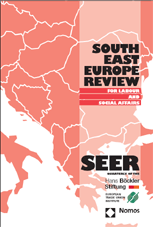Corporate and business strategies in Slovenian firms
Corporate and business strategies in Slovenian firms
Author(s): Danijel Pučko, Tomaž ČaterSubject(s): Economy
Published by: Nomos Verlag
Summary/Abstract: Most studies of business firms in (post)transitional economies focus on the state viewpoint, i.e. trying to explain what governments can do and what they actually do for firms to be as effective as possible. Our research approach is different. It focuses on the viewpoint of firms themselves (Peng, 2000), i.e. trying to explain how firms strategically behave and react to changes in the external environment. To be able to do that, we have first carefully studied the relevant scientific literature, including the findings of similar empirical studies. By applying analysis, deduction, elimination and synthesis (as well as some other) scientific methods, we have developed the theoretical basis needed for empirical investigation. The empirical material (for 225 Slovenian firms), collected by questionnaire as the main research instrument, is expanded by relevant financial and other data accessible in public databases. Beside the introductory and concluding part, the research reported in this article consists of three main parts. After a brief review of the relevant theory on corporate strategy, business strategy and cost and differentiation drivers, the methodological approach is explained in greater detail. After that, the empirical findings and discussion (i.e. theoretical comments and comparisons with other studies) are presented. Statistical methods used in this section include analysis of variance, contingency analysis, regression and correlation analyses and the paired samples t-test.
Journal: SEER - South-East Europe Review for Labour and Social Affairs
- Issue Year: 2005
- Issue No: 01
- Page Range: 39-61
- Page Count: 22
- Language: English

